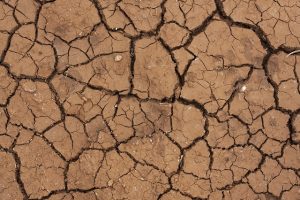
Professor Joe Smith
Covering climate change today in a meaningful and engaging way is increasingly challenging, reveal TV producers, in a new report by the OU’s Professor Joe Smith. He reflects that covering climate change seems akin to a kale smoothie – something which can be unappealing yet somehow fashionable and essential.
Amid continuing news stories on the effects and debates about climate change, Professor Smith spoke to the people behind news and current affairs programmes to understand the role television plays. With a focus on the specific demands and actions agreed at the Paris Agreement nearly 12 months ago – recently pulled into the spotlight by reported negative comments by US president-elect Donald Trump – the report shows the uphill battle producers face to creatively present the issues on the small screen.
The ‘awkward’ item
Professor Smith’s report reveals the task for programme makers of trying to entice broadcasters to cover a topic which on face value can appear ‘old news’ and which, pitted against more humanitarian news stories, can slip down the scheduling agenda as the ‘awkward’ item.
He says:
Climate change has a reputation for being the kale smoothie of the television schedules: unappealing but also a somehow fashionable and even essential element of the diet. Disguise it in a fancy glass? Drink it in one go and chase it down with something you actually like? Claim you want it, but not actually touch it when it’s presented to you.
Over the last year he talked to around 40 producers and media executives about the responsibilities, challenges and opportunities that climate change presents to them. He said:
They (TV producers) tend to very consistently signal that climate change is an important but also thoroughly ‘awkward’ topic for broadcasters. To paraphrase: ‘Everyone says we should make this stuff but no one except fanatics actually want to watch it’.
“The Paris Agreement on climate change, signed in December 2015, marked a major global commitment to totally decarbonise economies and societies within a few decades. And yet there is a widely shared sense among experts that the penny hasn’t really dropped. They feel that the public and politicians don’t really appreciate what is at stake if we are to reduce the risks of climate change, and limit the damage it is expected to cause.”
 He adds: “TV remains one of the most influential and accessible ways that people make sense of change in the world, and receive and respond to new knowledge. Yet climate change is an issue that seems designed to be ignored. Because it is a global and long-term change that overlays a variety of specific local effects and timescales, climate change lacks the human angles and clear storylines that are so central to the majority of broadcast storytelling. Broadcasters also think that TV audiences are allergic to anything that could be construed as ‘preachy.’
He adds: “TV remains one of the most influential and accessible ways that people make sense of change in the world, and receive and respond to new knowledge. Yet climate change is an issue that seems designed to be ignored. Because it is a global and long-term change that overlays a variety of specific local effects and timescales, climate change lacks the human angles and clear storylines that are so central to the majority of broadcast storytelling. Broadcasters also think that TV audiences are allergic to anything that could be construed as ‘preachy.’
“But the last year or so does throw up of examples of climate change themes being engagingly presented to very diverse audiences. And important lessons are being learned about what works and what doesn’t.
One approach is to find the right places to plant relevant storylines within existing programmes. Natural history, travel, adventure and landscape shows all draw good audiences, and often have opportunities to weave in appropriate reference to climate change.
“This can be seen in the BBC’s Countryfile and Springwatch, and Channel 4’s Grand Designs and Food Unwrapped. Simon Reeve’s travelogue/current affairs hybrids for BBC Two frequently feature climate change related issues but manage to keep the audience tuned in. A recent body of ‘living off grid’ shows, including Channel 4’s Eden, can prompt questions about consumption and lifestyle. Sky has offered a package of popular rainforest shows that have clearly referenced the topic.
“The right onscreen talent can make a big difference. Hence Hugh Fearnley Whittingstall’s Fish Fight (Channel 4) and Hugh’s War on Waste (BBC One) have taken a campaigning tone to raise environmental issues about consumption. Most recently, Arctic Live (BBC Two) has demonstrated that live event television can have a real impact. It showed how one charismatic place, and its human and animal communities, seem already to be experiencing the consequences of climate change.
Time to take a risk?
 “Nevertheless, TV coverage as a whole of this vital but tricky topic still feels like a ‘5 out of 10’ performance. And this huge and sprawling story isn’t about to go away. New ideas will be needed, and innovation requires risk taking. So I recommend that broadcasters should make a clear invitation for new ideas, and each of them should put budget and broadcast slots aside to this end. TV producers have to work in a buyers market because successful commissions are one in a hundred. So these signals would incentivise producers to develop and pitch proposals.
“Nevertheless, TV coverage as a whole of this vital but tricky topic still feels like a ‘5 out of 10’ performance. And this huge and sprawling story isn’t about to go away. New ideas will be needed, and innovation requires risk taking. So I recommend that broadcasters should make a clear invitation for new ideas, and each of them should put budget and broadcast slots aside to this end. TV producers have to work in a buyers market because successful commissions are one in a hundred. So these signals would incentivise producers to develop and pitch proposals.
“But producers shouldn’t be the only people taking risks: climate researchers should risk wasting some of their time by advising TV producers on long-shot prospects. They should be patient supporters of concepts for new shows or approaches. And of course viewers should risk wasting some of their time by actually watching the shows , and take a little more time to tell the media what they think. Have programmes changed their thinking or actions? If not, what would make a difference?
I’m not sure it matters precisely how climate change is added to people’s TV diets. But the latest scientific research and the Paris Agreement mean that it really has become an essential ingredient.
“Governments all over the world will now have to report on their progress on climate change actions every five years. We already know that climate change policy objectives have been a massive stimulus for innovations in design and technology. If I report back again in five years’ time I hope that I will find that this tough but vital topic has also inspired some of the best innovations in television.”



